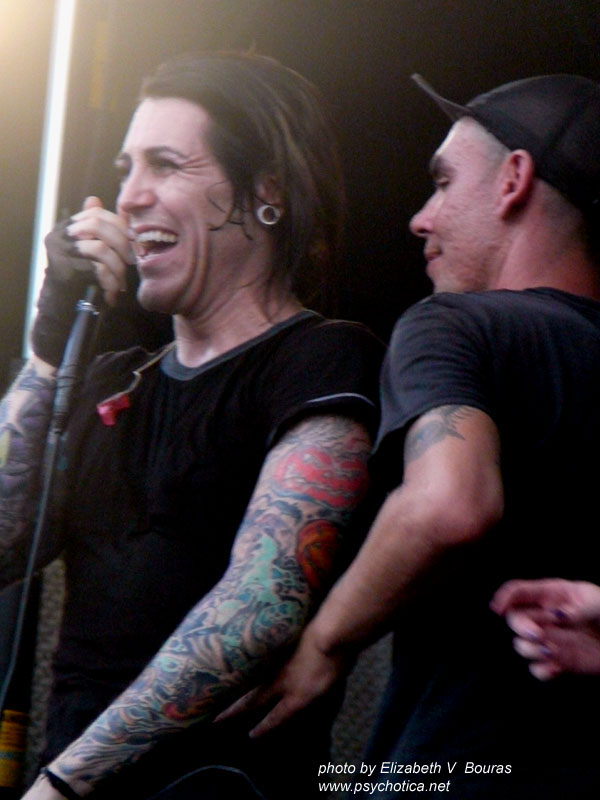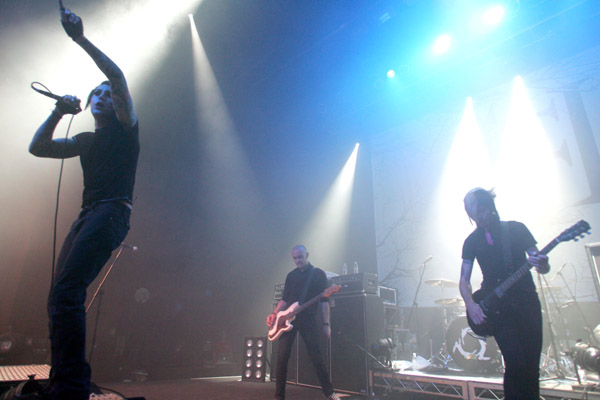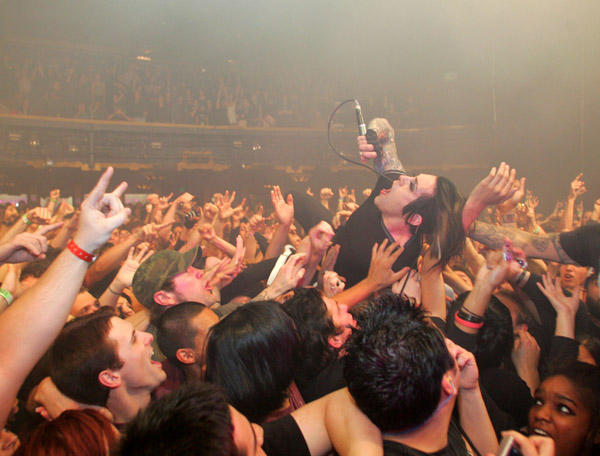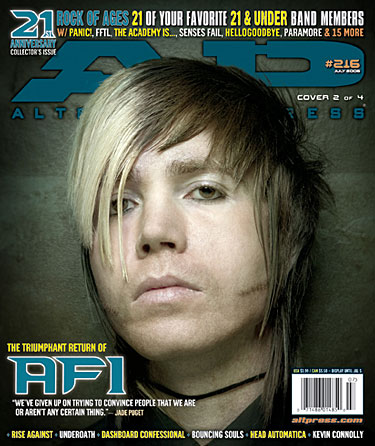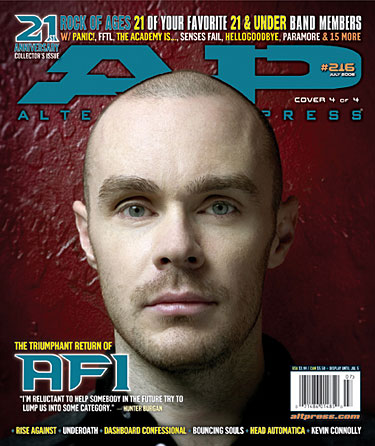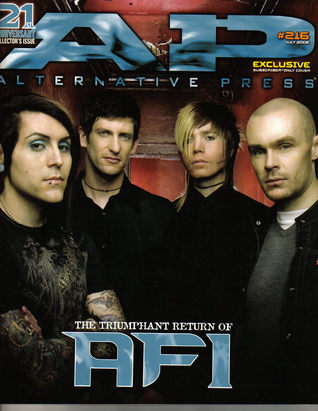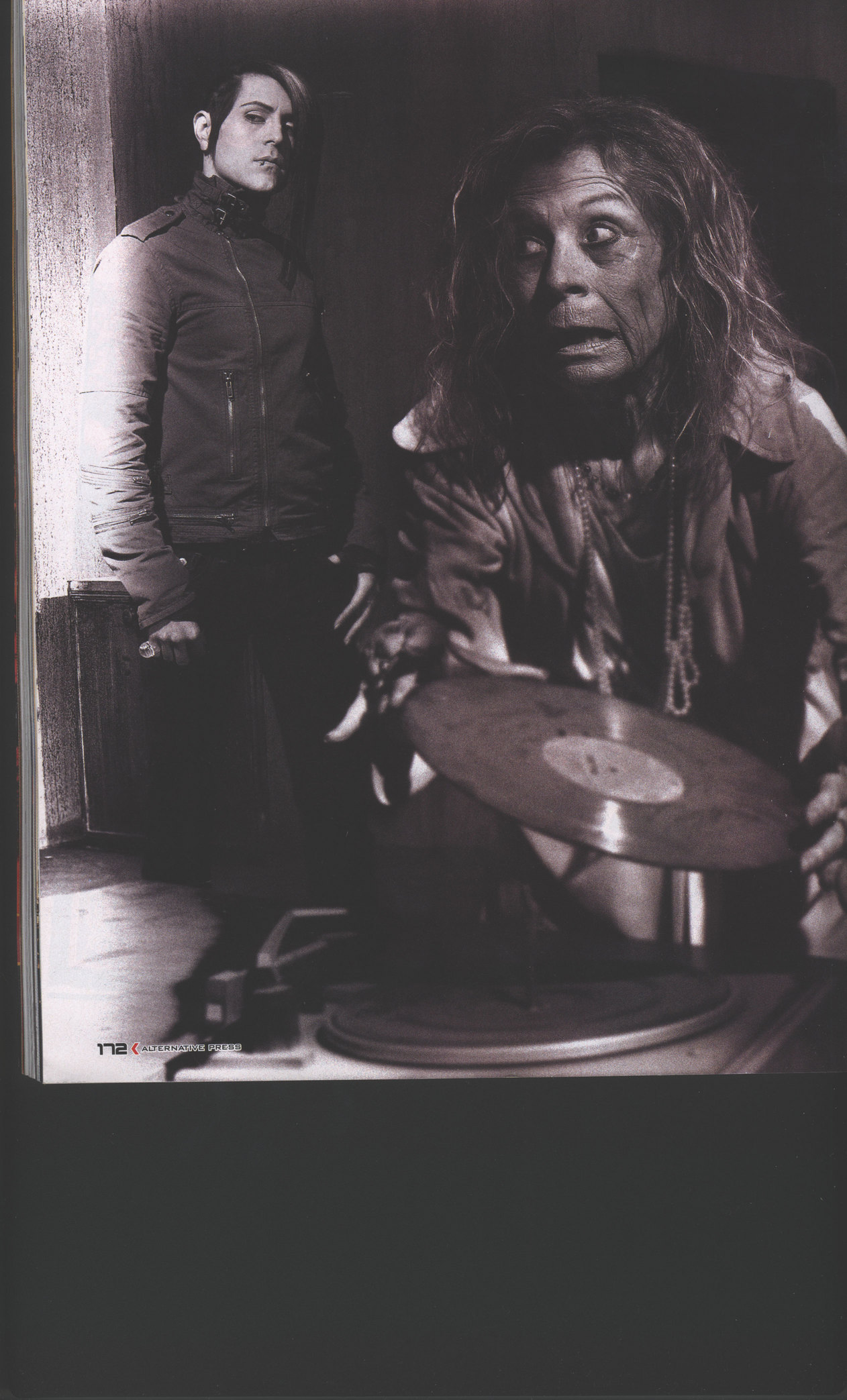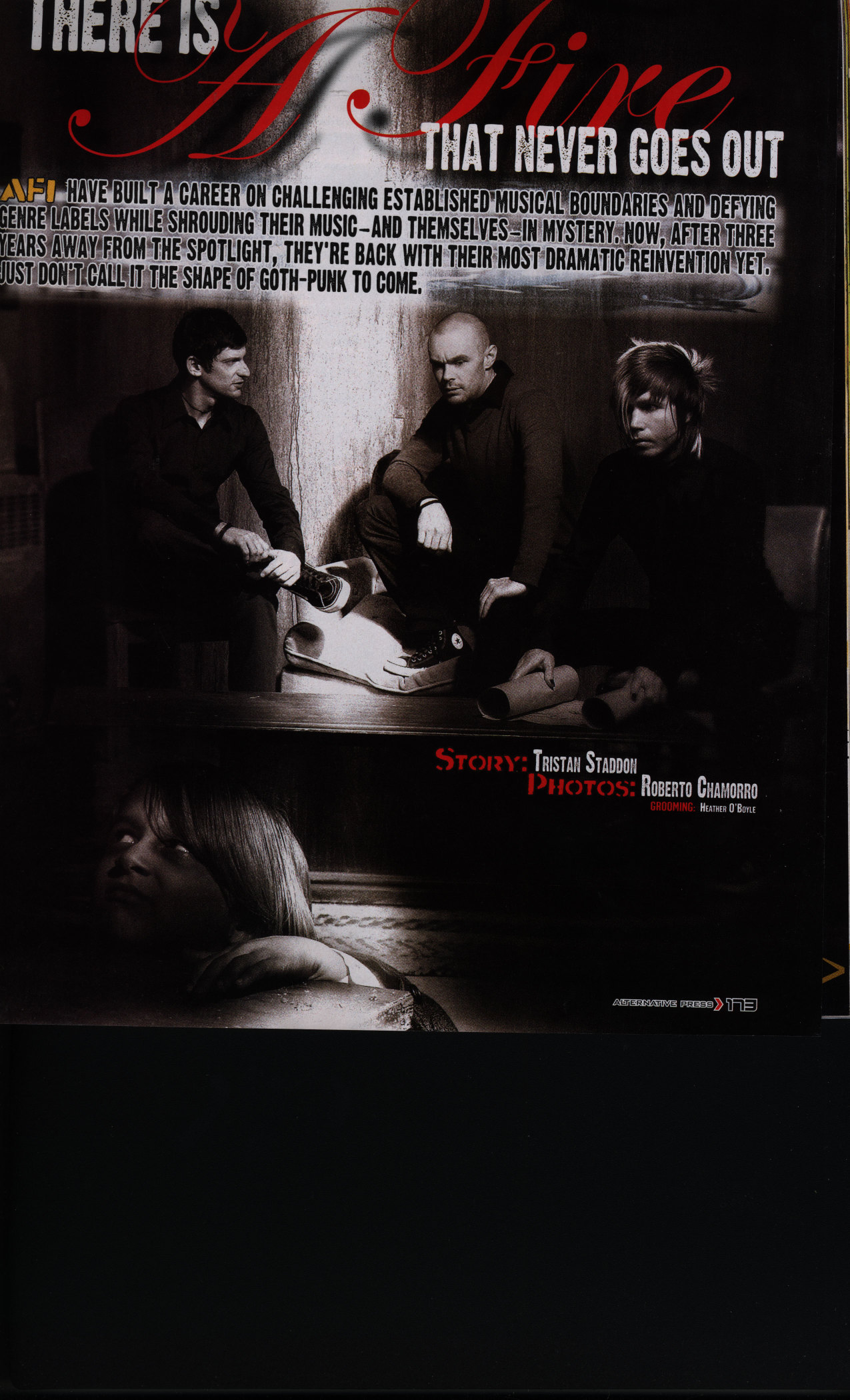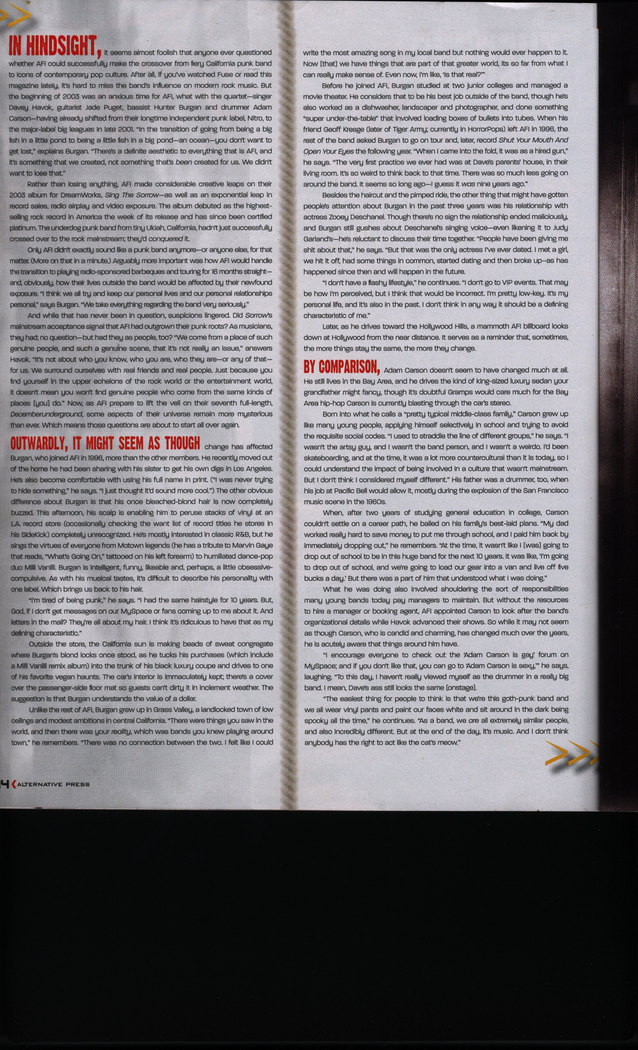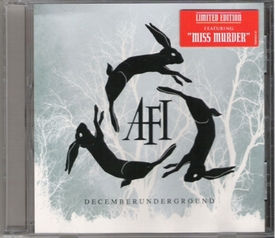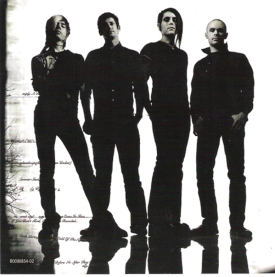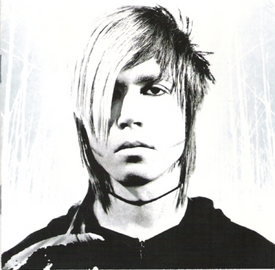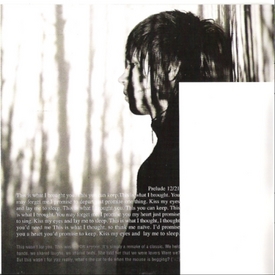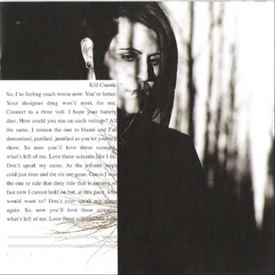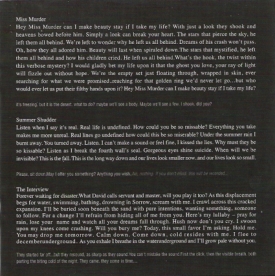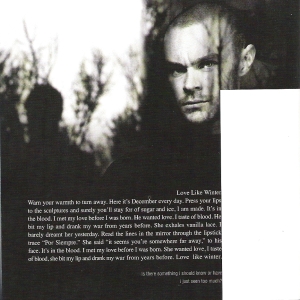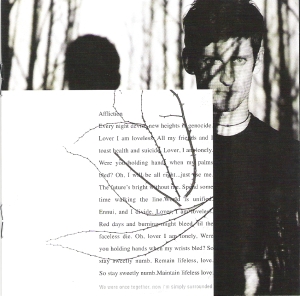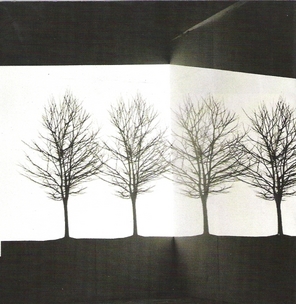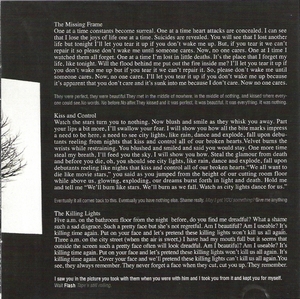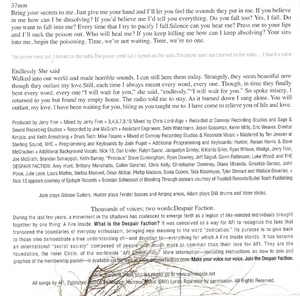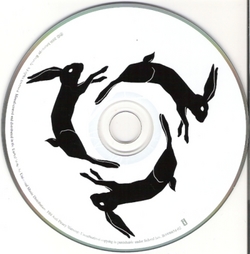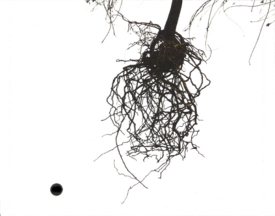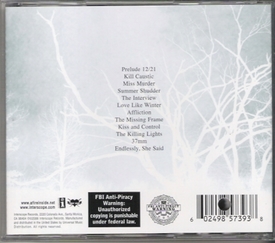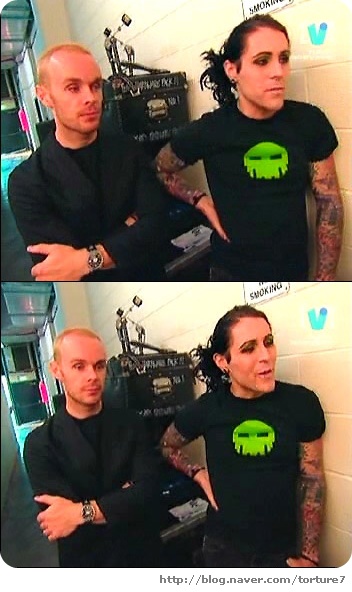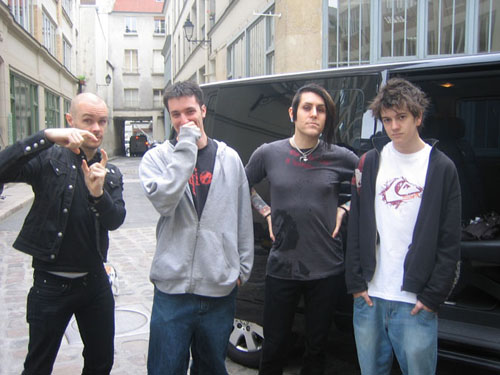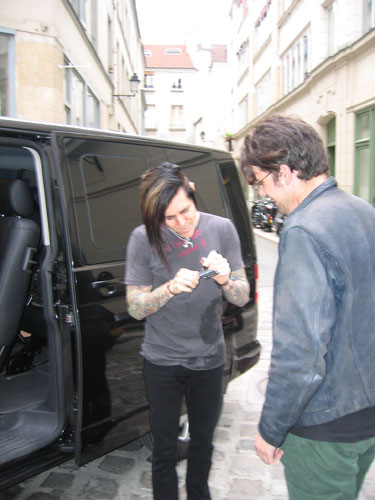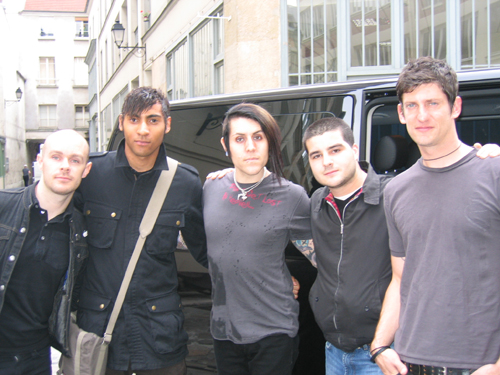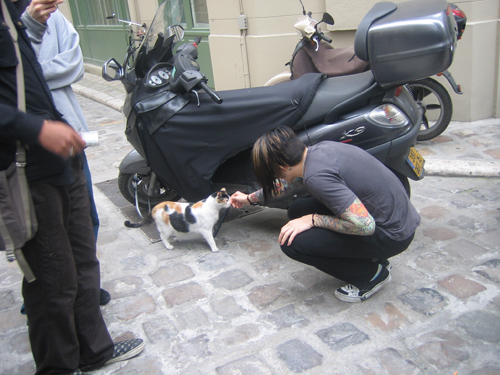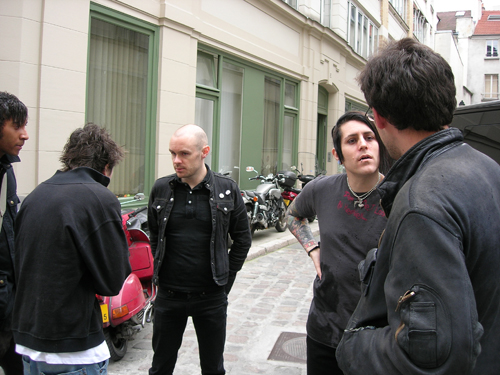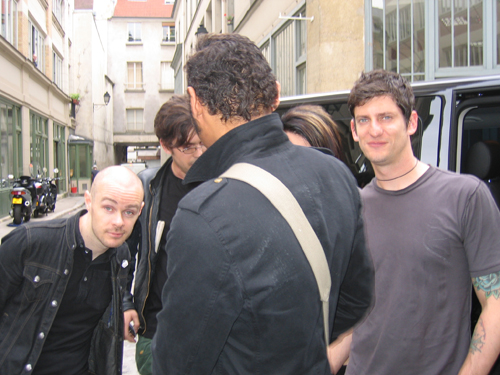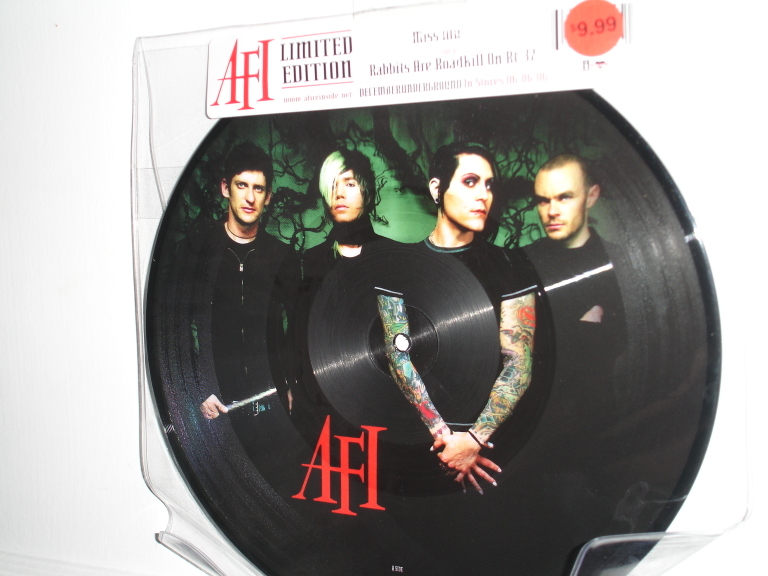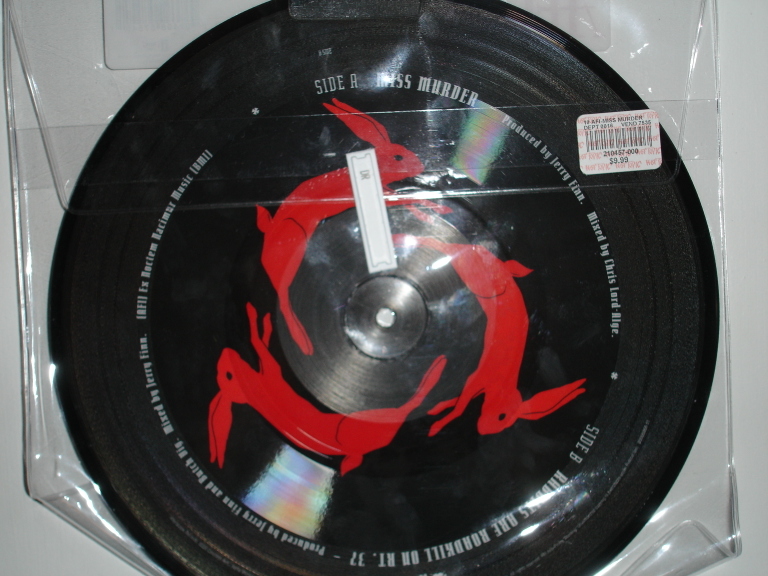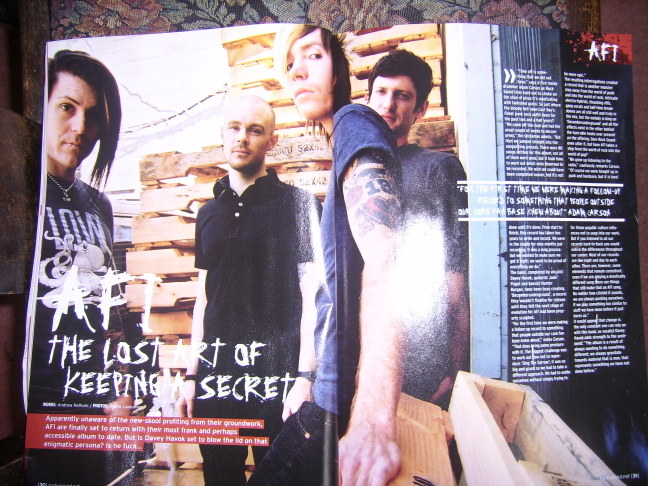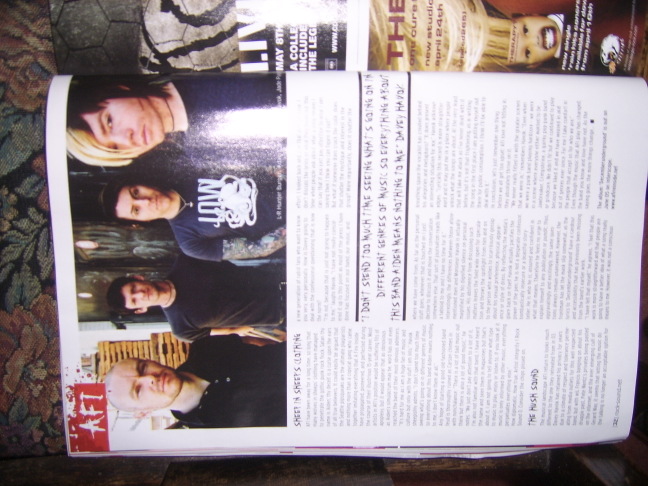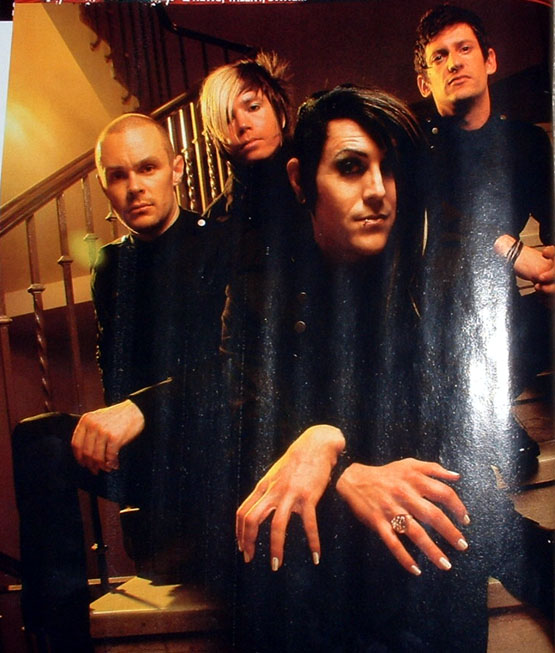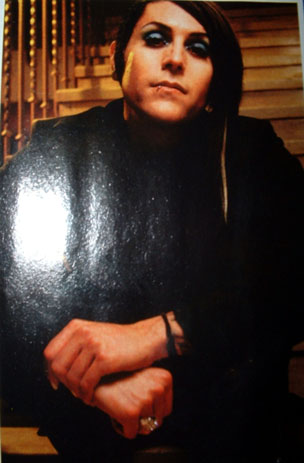There’s A Fire That Never Goes Out
“AFI have built a career on challenging established musical boundaries and defying genre labels while shrouding their music – and themselves – in mystery. Now, after three years away from the spotlight, they’re back with their most dramatic reinvention yet. Just don’t call them the shape of Goth-Punk to come
Story: Tristan Staddon
Although Jade Puget only joined AFI at the time of 1999’s Black Sails in the Sunset, replacing original guitarist Mark Stopholse, his emergence as the band’s primary songwriter is what most observers credit with triggering AFI’s evolution. “The first time I saw AFI was in the fall of 1991 in a living room party,” say Nick 13, Tiger Army frontman and longtime band friend. “They had, like, seven originals, which took maybe 10 minutes to play. So they repeated their set three times in a row, and no one noticed. It was completely awful. I think they really started to make artistic strides when Jade came on as a guitarist and songwriter. It’s almost like a completely different band. To go from (their origins) to what I feel is one of the most important things in rock music today is pretty amazing.”
“Musically, Jade’s world was much broader,” agrees Burgan. “We had a whole different chemistry, and there were so many possibilities and things we could do. I thought, ‘This is great. This is going to be so much more fulfilling as a musician than anything we’ve done so far.’ And it’s only grown from that.”
Today, Puget and his girlfriend, Marissa Festa, are hanging out on a couch at the offices of AFI’s management. They’re the kind of couple that’s so impossibly attractive, it’s hard to tell which is responsible for more of the world’s jealousy. Scattered around the room are custom skate decks featuring artwork inspired by acts on the management company’s roster, like the Mars Volat and the Beastie Boys. Posters of past and present clients such as Nirvana, Sonic Youth and Foo Fighers decorate the walls, and a life-sized paper-mache figure that looks vaguely like Beck stands perched agains the office’s south wall.
The great irony is Puget’s becoming one of the most prolific songwriters in rock – and guiding AFI to their rightful position among other rock gods in the office’s décor – is that he never really wanted to be in a band. A high-school dropout who embraced straight-edge culture in late adolescence, Puget later became the only member of AFI to graduate from college, earning his degree in social theory from the University of California, Berkeley. “It was never my idea to be in a band as a career,” he says. “My whole life, I really wanted to be a novelist. High school was just a waste of my time. I wanted to listen to punk, skate and go to shows. Once I got my [driver’s] license, it was like nothing could keep me in school.
“I hung out at a punk house where everybody was always drinking, and walked around with X’s taped to my hands,” he remembers. “When you’re a kid, you’re really into anything that’s a fad like that, that’s so militant. Now, it’s just a personal thing. I’m not trying to convert anybody, [because] I know I don’t want to be converted to anything.”
Soon, a friend of Puget’s will arrive to tattoo a Godspeed You! Black Emeror symbol on the inside of the guitarist’s right forearm. But beneath the ink he sports and the accolades he’s earned, it’s as though an important part of Puget is still that kid, raised poor and weaned on punk rock, altogether fascinated by what he’s become. As an un-sequenced copy of DecemberUnderground plays in the background, it’s as though that kids is taking out from inside him, putting into worlds the biggest difference between his now, his then, and a few years ago when he joined AFI.
“We run our Myspace page, so I was putting [our new single] ‘Miss Murder’ up there this morning,” Puget explains. “By the time I refreshed the page, it already had 500 plays. That means there were already 500 people on our page while I was doing that, that happened to see the song go up and start playing that. With the internet now… it’s crazy.”
That the internet – or more specifically, Myspace – is a madhouse shouldn’t exactly come as a news flash, especially to this band. Considering that there are roughly six-dozen Mysapce accounts registered under the name Davey Havok, none of which actually belongs to the singer. While that development marks a significant change from AFI’s early days, Havok’s role in the band is unchanged. His face and voice are instantly recognizable; his words, the bittersweet prose of one punk’s modern poets. He is the band’s spirit and emotional centerpiece – and their biggest enigma. What’s different, then, is that these days, AFI aren’t your friendly neighborhood punk band. They’re everyone’s.
Born to Italian-American parents, Havok moved with his family to California from Rochester, New York, when he was 5. The first album he owned was AC/DC’s Back in Black, and when he was 12, his family moved to Ukiah. Raised a Roman Catholic – he left Catholic school for the public system after graduating junior high – Havok is also straight edge and vegan. “There’s a lot of good cooking I’ve forgone for veganism,” he says, laughing. “My mother was very supportive of my diet, but she’d say ‘You’re betraying your heritage! It’s all right if you don’t have wine. But you’re Italian – you eat cheese!’ Despite [that] technically, they were always really supportive.” In high school, he worked a handful of jobs at a pear shed, saved money for college, and met the young men he’d one day call bandmates and best friends.
“Whereas I described myself as the normal kids, hew was the weird kid,” explains Carson. “He was the kid who had a Mohawk when having a Mohawk was really a statement. He would dye his hair different colors when that could get you beat up by the football team. He had a dangling earring when that guaranteed that girls wouldn’t pay attention to you. But I can’t say that he was an outsider, because he has this charisma that people arew drawn to.”
“He didn’t look any different in a way that was definitely not palatable to the mainstream at the time,” remembers Nick 13. “But at the same time he was incredibly well-liked by adults, as well as his peers [and] his teachers. So maybe he [opened] some people’s eyes that it’s what’s inside, not conforming to the rest of the herd, that’s so important.”
A dedicated student, Havok earned a scholarship to UC Berkeley where he completed two years of a double major in English and psychology. But that summer he decide that AFI was the only thing he wanted to do with his live, and, much to the dismay of his family, he dropped out of college. “I remember my mom being like, ‘What’s the biggest bend in your genre of music?’” he says. “And I go ‘Well, probably Sick Of It All.’” And she goes, ‘Why have I never heard of that band?’”
Today, Havok is sipping tea on the patio at a Berkeley café, dutifully fielding phone interviews from radio stations that want him to talk about “Miss Murder,” AFI’s first new single in two years. It’s been less than 24 hours since the song was first aired, so the Djs are circling, “Look at this,” he says gesturing towards a piece of fairly literal fan art that’s been forwarded to his sidekick. “I guess this is what Miss Murder looks like.” Apparently, it’s not just radio folks who are glad AFI’s back.
While Sorrow was and enormous success for AFI, what disappointments the band did have seemed to center around Havok in mid-2004, trauma to his vocal cords required surgery, causing AFI to turn down their invitation to play the Cure founder Robert Smith’s traveling Curiosa festival. Then, Havok’s clothing line, Glitterboy, debuted to mild response and was discontinued. But the man can take it. He’s a genuine rock star, and let’s be honest, he’s also the chief reason many of you are reading this story. So you can probably appreciate how Sorrow’s success cast Havok in the image of his idols, true rock artists like Smith and Morrissey. Like them, Havok specializes in writing uniquely personal, often poignant lyrical narratives, the kind that have incited rabid fandom, both positive and negative, regardless of whether he was ready. Usually he has been.
“Over the years, I’ve watched him gracefully become this sort of musical icon,” says Carson. “Which is interesting, to watch your friend go through that. He has a really tough job, because he’s the face of the band. The way that your average person consumes rock ‘n’ roll is to focus on the singer. I think there’s a tremendous amount of responsibility that comes with being that focus because if someone actively hates our band, it’s not me they’re hating, it’s Dave.”
Like Smith and Morrissey, Havok puts much of himself into his writing, no matter how heavily encrypted it may seem. Yet he’s also intensely private with the details of his personal life. And he seems acutely aware that much of the reason people are so fascinated by his song writing – and indeed, by him – has much to do with the veil of mystery that surrounds his lyrics and personal affairs.
“It’s such as selfish style of writing, in that I want to put my emotions and feelings out there,” he says. “There’s something that, not necessarily encourages people’s desire to know aspects of people’s lives that they admire, but facilitates it. To say that it’s encouraged and desired. No I understand it but there’s always a line.”
He begins to illustrate a typical fan interaction, “it can be something as innocent as, ‘Oh my gosh I can’t believe I’m seeing you here right now, I’m totally in love with you.’ Thank you very much! It’s nice to meet you. My name is Davey. ‘It’s nice to meet you to! So, can I have your phone number?’ No. ‘Okay, I just figured I’d try.’ And then there are these instances that are extreme – and I’d actually rather not say what [those] instances are, to prevent copycats and people who really infringe on my personal life.”
When He adopted the name Havok back in AFI’s early days, it was out of love for other artists who went by stage names, like Jane’s Addiction frontman Perry Farrell and Germs bassist Lorna Doom. All these years later, it’s ironic that the name that once served to get Havok (ie Havok) noticed has, in some ways, become something that disguises the character he inhabits onstage from the man he is the rest of the time.
“There’s a difference between the person you’ll go to see perform live on a stage and the person you’re talking to now,” says Havok. “That’s not to say that one is any more false or fake. Nothing is forced and nothing is contrived. They show themselves and manifest themselves in different environments. Different people call me by different names depending on who they are and who I am to them. But if someone calls me David it better be my mom or my cousins.”
When Curiosa fell through, AFI immediately began writing for their seventh album, and they quickly had more songs than they could ever fit on one disk. “At least 100,” confirms Puget. “There are probably as many as (the page is cut off here) actually worked out, with vocal and everything, in addition to the ones we recorded.” So, before officially entering production with returning producer Jerry Finn (Blink 182, Morrissey), AFI had to distill their work into one connection that would accurately represent the entire groups headspace.
“That point of finding songs that demanded to be recorded,” says Carson. “It was about what, ‘What songs we choose to create a complete work? And what kind of complete work are we trying to make? With the amount of decent songs we had, we could have made five different types of records.”
The record they did make is Decemberunderground, an album that builds on the anthemic qualities of predecessors and seamlessly incorporates new electronic influences behind the best whispers and screams of Havok’s career. “’Death of Seasons,’ on our last record, had more an obvious electronic influence than anything on this record,” says Puget. “But I think it’s incorporate into the songs best on this one. That’s really what we’ve been trying to do for years now, keep it interesting and no go over the same forged ground. Some bands are happy to sound the same from record to record, but some bands always like to push the envelope, which I think is more exciting. And I think those bands are more important to furthering rock music.”
With nearly unlimited time and resources at their disposal (the album was recorded in six studios over the course of nine months). AFI had the chance to involve less obvious influences, like U2 in their music, while also experimenting wildly. “I wanted to take more time to [tackle? Explore?] different tones and really explore this album,” says Burgan.
In Hindsight, it seems almost foolish that anyone ever questioned whether AFI could successfully make the crossover from [?ery] California Punk band to icons of contemporary pop culture. After all, if you’ve watched Fuse or read this magazine lately, it’s hard to miss the band’s influence on modern rock music. But the beginning of 2003 was an anxious time for AFI, what with the quartet – singer Davey Havok, guitarist Jade Puget, bassist Hunter Burgan and drummer Adam Carson – having already shifted from their longtime independent punk label, Nitro, to the major label big leagues in 2001. “In the transition of going from being a big fish in a little pond to being a little fish in a big pond – an ocean – you don’t want to get lost,” explains Burgan. “there’s a definite aesthetic to everything that is AFI, and it’s something that we created, not something that had been created for us. We didn’t’ want to lose that.”
Rather than losing anything, AFI made considerable creative leaps on their 2003 album for Dreamworks, Sing the Sorrow – as well as an exponential leap in record sales, radio airplay and video exposure. The album debuted as the highest-selling rock record in America the week of its release and has since been certified platinum. The underdog punk band from tiny Ukiah, California, hadn’t just successfully crossed over to the mainstream, they’d conquered it.
Only AFI didn’t exactly sound like a punk band anymore – or anyone else, for that matter. (More on that in a minute.) Arguably more important was how AFI would handle the transition to playing radio sponsored barbeques and touring for 16 months straight – and, obviously, how their lives outside the band would be affected by their newfound exposure. “I think we all try to keep our personal lives and our personal relationships personal,” says Burgan. “We take everything regarding the band very seriously.”
And while that has never been in question, suspicions lingered. Did Sorrow’s mainstream acceptance signal that AFI had outgrown their punk roots? As musicians they had no question – but had they as people, too? “We came from a place of such genuine people, and such a genuine scene, that it’s not really an issue,” answers Havok. “It’s not about who you know, who you are, who they are – or any of that – for us. We surround ourselves with real friends and real people. Just because you find yourself in the upper echelons of the rock world or the entertainment world, it doesn’t mean you wont’ find genuine people who come from the same kinds of places (you) do.” Now, as AFI prepare to lift the veil on their seventh full-length, Decemberunderground, some aspects of their universe remain more mysterious than ever. Which means those questions are about to start over again.
Outwardly, it might seem as though change has affected Burgan, who joined AFI in 1996, more than other members. He recently moved out of the home he had been scharing with his sister to get his own digs in Los Angelos. He’s also become comfortable with using his full name in print, (“I was never trying to hide something,” he says. “I just though it’d sound more cool.”) The other obvious difference about Burgan is that his once bleached-blond hair is now completely buzzed. This afternoon his scalp is enabling him to peruse stacks of vinyl at an L.A. record store (occasionally checking the want list of the record titles he stores in his sidekick) completely unrecognized. He’s mostly interested in classic R&B but he sings the virtues of everyone from Motown legends (he has a tribute to Marvin Gaye that reads “What’s Going on,” tattooed on his left forearm) to humiliated danced-pop duo Milli Vanilli, Burgan is intelligent, funny, likeable and perhaps, a little obsessive-compulsive. As with his musical tastes, it’s difficult to describe his personality with one label. Which brings us back to his hair.
“I’m tired of being punk,” he says. “I had the same hairstyle for 10 years. But, God if I don’t get messages on our Myspace or fans coming up to me about it, And letters in the mail? They’re all about my hair, I think it’s ridiculous to have that as my defining characteristic.”
Outside the store, the California sun is making beads of sweat congregate where Burgan’s blond locks once stood, as he tucks his purchases (which include a Milli Vanilli remix album) into the trunk of his black luxury coupe and rives to one of his favorite vegan haunts. The car’s interior is immaculately kept; there’s a cover over the passenger side floor mat so guests can’t dirty it in inclement weather. The suggestion is that Burgan understands the value of the dollar.
Unlike the rest of AFI, Burgan grew up in Grass Valley, a landlocked town of low ceilings and modest ambitions in central California. “There were things you saw in the world, and then there was your reality, which was bands you knew playing around town,” he remembers. “There was no connection between the two. I felt like I could write the most amazing song in my local band but nothing would ever happen to it. Now [that] we have things that are part of the greater world, it’s so far from what I can really make sense of. Even now I’m like, ‘is this real?’”
Before he joined AFI, Burgan studied at two junior colleges and managed a movie theater. He considers that to be his best job outside of the band, though he’s also worked as a dishwasher, landscaper and photographer, and done something “super under-the-table: that involved loading boxes of bullets into tubes. When his friend Geoff Kresge (later of Tiger Army, currently in HorrorPops) left AFI in 1996, the rest of the band asked Burgan to go on tour and, later recorded Shut Your Mouth And Open Your Eyes the following year. “When I came into the field, it was as a hired gun,” he says. “The very first practice we ever had was at Dave’s parent’s house, in their living room. It’s so weird to think back to that time. There was so much less going on around the bad, it seems so long ago – I guess it was nine years ago.”
Besides the haircut and the pimped ride, the other thing that might have gotten people’s attention about Burgan in the past thee years was his relationships with actress Zooey Deschanel. Though there’s no sign that the relationship ended maliciously and Burgan still gushes about Deschanel’s singing voice – even likening it to Judy Garland’s – he’s reluctant to discuss their time together. “People have been ivin me shit about that,” he says. “But that was the only actress I’ve ever dated. I met a girl, we hit it off, had some things in common, started dating and then broke up – as happened since then and will happen in the future.
“I don’t have a flashy lifestyle,” he continues. “I don’t go to VIP events. That may be how I’m perceived, but I think that would be incorrect. I’m pretty low-key. It’s my personal life, and it’s also the past. I don’t’ think in any way it should be a defining characteristic of me.”
Later he drove towards the Hollywood Hills, a mammoth AFI billboard looks down at Hollywood from the near distance. It serves as a reminder that, sometimes the more things stay the same the, more they change.
By comparison, Adam Carson doesn’t’ seem to have changed much at all. He still lives in the Bay Area, and he drives the kind of king-sized luxury sedan your grandfather might fancy, though it’s doubtful Gramps would care much for the Bay area hip-hop Carson is currently blasting though the car’s stereo.
Born into what he calls a “pretty typical middle-class family,” Carson grew up like many young people, applying himself selectively in school and trying to avoid the requisite social codes. “I used to straddle the line of different groups,” he says. “I wasn’t the artsy guy, and I wasn’t the band person, and I wasn’t a weirdo. I’d been skateboarding, and at the time, it was a lot more counterculture than it is today, so I could understand the impact of being involved in a culture that wasn’t mainstream. But I don’t think I consider myself different.” His father was a drummer, to when his job at Pacific Bell would allow it, mostly during the explosion of the San Francisco music scene in the 1980s.
When, after two years of studying general education in college, Carson couldn’t settle on a career path, he balled on his family’s best-laid plans. “My dad worked really hard to save money to put me though school, and I paid him back by immediately dropping out,” he remembers. “At the time, it wasn’t like I [was] going to drop out of school to be in this huge band for the next 10 years, it was like ‘I’m going to drop out of school, and we’re going to load our gear in a van and live off five bucks a day.’ But there was a part of him that understood what I was doing.”
What he was doing also involved shouldering the sort of responsibilities many young bands today pay managers to maintain. But without the resources to hire a manager or booking agent, AFI appointed Carson to look after the band’s organizational details while Havok advances their shows. So while it may not seem as though Carson, who is candid and charming, has changed much over the years, he is acutely aware that the things around him have.
“I encourage everyone to check out the ‘Adam Carson is gay’ forum on Myspace; and if you don’t like it, you can go to ‘Adam Carson is sexy,’” he says, laughing. “To this day, I haven’t really viewed myself as the drummer in a really big band, I mean Dave’s ass still looks the same [onstage].
“The easiest thing for people to think is that we’re this goth-punk band and we all wear vinyl pants and paint our faces white and shit around in the dark being spooky all the time,” he continues. “As a band, we are extremely similar people, and also incredibly different. But at the end of the day, it’s music. And I don’t think anybody has the right to act like the cat’s meow.”
“That’s what I love about being in the band, about doing what I do: Every time we do something, it’s different than the last time we did it.”
“Hunter and I spend a lot of time having fun trying new things to increase our playing skills,” adds Carson. “So that when Jade and Davey feel that they had something worth working on, we would have new approaches.”
They also took a refreshing new approach to recording gang vocals, inviting around 20 members of their fan club, the Despair Faction (who’s membership is almost 30,000 strong), to sing and stomp backing parts on “Miss Murder.” “Jade was leading us as a chorus, pumping his fist along with the ‘heys’ so we could follow along really easily,” remembers Talia Nissimyan, who’s been a Despair Faction member since 2003. “It was really awesome to see that, even when people start freaking out and getting sort of breath, [AFI] were really patient with them and stood there and talked to them. They’re normal, really nice people. And that’s a really nice thing to find out about your favorite band.”
“One person, at the very end, when they were saying goodbye to the band, was crying,” says Sonia Dubon, a Despair Faction administrator. “He was just really excited, and thanking everybody because it was the best experience of his live and he had never dreamed that something like this could happen to him. Not a lot of bands reach out to their fans like AFI does.”
And they’ve continued reaching out ever since, creating an internationally organized multimedia treasure hunt (“Let’s call it the mythos,” suggests Havok) through their message board that, so far, has required participants to translate foreign languages, locate random items in newspapers and comic shops, and monitor cell phone messages, Myspace accounts and peculiar websites for clues. It gets more complicated, but it’s suffice to say that by the time you read this, those who have seen the hunt’s first stage through to competition will have witnessed intimate secrets shows in their cities.
Meanwhile, AFI have pulled from their broadest musical palette ever on DecemberUnderground, fusing elements of punk, hardcore, rock, pop, goth, and increasingly, electronic music into their most dynamic progression yet. Which leaves one last mystery in AFI’s universe – and it’s one that’s been around the longest. After 15 years of reinvention, what kind of band do they even consider themselves to be?
“All of those genres – if in fact, you can agree on them as legitimate genres – are part of us in some way,” says Havok. “I perceive us, and what we do as something that doesn’t’ fit into nay one category. My hope would be that we’re looked at as something that stands apart.”
“There’s a difference between the mentality that’s about dirking 40s and throwing up and smashing the state and ‘Fuck Reagan’ and all that,” says Carson, “and the punk mentality that says ‘I’m going to make sure that the music reflects who I am; I’m going to question what’s being thrown at me; and I’m going to demand that culture rises to my level of intellect, rather than lower my standards to a popular culture.’ That kind of thinking and that kind of lifestyle are very much still who I am and very much who I think we are.”
“If you listen to our music and don’t take any o four image – or what Dave looks like – into account,” he begins Puget, “and you come up with ‘goth – punk’ then by all means, [go ahead]. When Sing the Sorrow came out, we were totally baffled. Just because of the way Davey looked, we were ‘goth – punk,’ ‘goth – rock’ or goth – whatever. The term should come from what the music is, not what we look like. I think we’ve kind of given up on trying to convince people that we aren’t any certain thing. But I don’t know that we’ll ever escape that goth tag.”
“If there were a bdn that said, ‘We are a goth-punk band,’ I’d wonder what that means,” says Havok. “Is that like Dead can Dance meets the Germs or something? To me, growing up, punk rock was the Germs and Black Flag and 7 Seconds and Negative Approach and Minor Threat. I believe if you’re going to look at a very ethereal, moody, beautiful music and you’re going to cross that with this brutal, sometimes nihilistic, unrefined aggression … I don’t know. There’s no such thing. Basically we don’t care what you call us. We’re not going to own it.”
“I’m reluctant to help somebody in the future try to lump us into some category,” says Burgan. “There’s dozens of current bands I would not want to be associated with whatsoever, but at the same time we’re all making rock music for the masses. I don’t think I’d necessarily want to get more specific than that. It’s the only one that’s not inaccurate.”
William Shakespeare once wrote that a rose by any other name would still smell the same. However, while AFI’s music has changed significantly, the members really have grown more steadfast to who they are as musicians – as people.
“I think I’m in a band that’s somewhat unique and continues to reinvent itself and always will,” says Carson. “We don’t want to tether ourselves to any one genre of music. There are no rules, there’s no agenda, and there’s no limit to what we might want to do.”
Girl’s Not Hungry
While they’re still four of the most personable and approachable people ein rock, it’s clear then men of AFI have been introduced to a few high-profile social circles since the release of Sing the Sorrow three years ago. Whether it was the time the band spent sharing their studio compound with a handful of contemporary pop stars and a certain hotel heiress, or that time Hunter Burgan challenged former Beatle Sir Paul McCartney to a duel, they’ve got some memorable tales to recount. “We were at L.A.’s Conway Studios a week ago working on a part,” says Jade Puget. “And Maroon5 and Christian Aguilera were there. Michael Jackson did his [yet-to-be-released] Hurricane Katrian [benefit single] there. So there’s always something funny going on.” Here then, are AFI top three brushes with pop royality.
Sir Paul McCartney
What happens when the bassist from one generation’s Fab Four crosses path with the counterpart from it’s grandchildren’s? A whole lotta trash talk, that’s what. “We have to talk about Paul McCartney, because I challenged him, in person, to a bass off,” says Burgan, laughing. “He declined, because he said he didn’t want to make me cry. And yeah those were pretty much his exact words.”
Michael Jackson
Regrettably, the King Of Pop’s presence at Conway wasn’t physical, since he was hoed up at his home in the Golf of Bahrain during AFI’s recording time. “Michael Jackson was only on a screen,” explains Davey Havok. “He was directing via satellite, producing some kind of project that Beyonce and Snopp Dogg came in and worked on. I don’t’ much about the project, but they were there in Studio B.”
Paris Hilton
“Paris Hilton was there recording her album when we were recording,” remembers Puget. “She’s always had these amazing cars, and I was very jealous.” But the big story about AFI and America’s favorite socialite has to do with her apparent fondness for vegan treats – specifically other people’s. “She ate Dave’s birthday cake,” Puget laughs. “It was Dave’s birthday, and he got this cake, and he walks into the lounge and she was eating it, just looking at him. He’s like ‘Hello. That’s my crappy vegan birthday cake.”
“We definitely have friends of friends, so I’m not going to start a press war with her,” says Havok. “But it was my birthday. I just wouldn’t have been that funny if it hadn’t been her.” So while Havok chooses to remain diplomatic about that experience, he will talk about a different incident involving one of Ms. Hilton’s prized autos. “I can confirm that she was driving multiple amazing vehicles, one of which we later saw crashed,” he says. “The paparazzi caught her crashing of the cars that we had seen her driving back into a truck. Such is the life, I suppose.”
That’s what some people might call just desserts.
A Fire Outside
By now, you know that AFI have spent most of the past two years concentrating on the writing, recording and refining of DecemberUnderground. What you might not know is that some members also found time to address some other avenues of their musical appetites. For Jade Puget and Davey Havok, that involves Blaqk Audio, their highly mysterious and entirely electronic side project. “We have a point of using no real instruments on it,” explains Puget. “When we started out we were really influenced by [industrial bands like] Apoptygma Berzerk and VNV Nation, but as it went, I wanted to delve into all these different areas. I’ve been working on it for about four years now, when I’ve had time.” Though Puget says he’s unsure of when the project will be released, or via whom, he confirms that it is closer to fruition than ever. “We have seven songs that we’ve actually demoed vocals to,” he explains. “That’s almost ab album. It’s just a matter now of getting those final few songs together and going in and recording the vocals. I mean, it’s really close. It’d be done if we just had time to do it.”
Over in the rhythms section, Hunter Burgan’s danceable soul-o venture, Hunter Revenge (hunterrevenge.com), released an eight-song self-title album of falsetto-fueled jams on Checkermate Records in 2001. “I have a ton of new material recorded and ready to go,” he syas. “But everything is on the pause until AFI takes a break. I wouldn’t want anything I do outside to interfere or take precedence.”
What does Adam Carson do when he’s not in AFI? Like the rest of the band, he was recently nominated for PETA’s World’s sexiest Vegetarian Award. But other than that? “I love pirates. And I always have, since I was a little kid,” hey says, laughing. “And I once made the misstate of expressing my love for pirates [in an interview], and ever since my entire existence away from the band has become this interest in pirates. Well, I don’t live pirates that much.”






